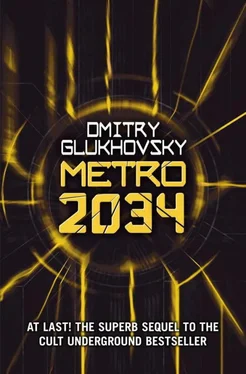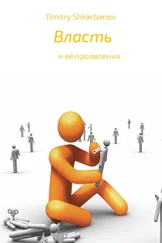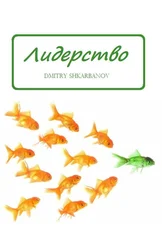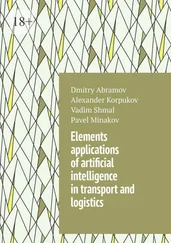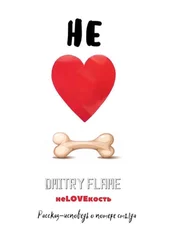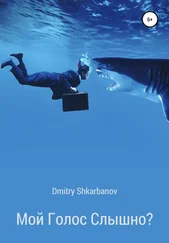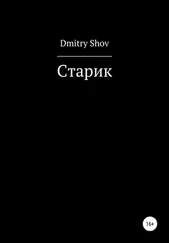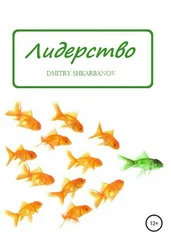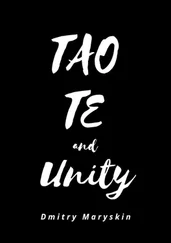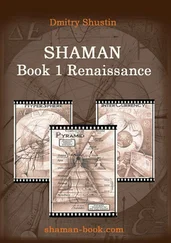The battle had been lost. But where was Hunter?
The old man peeped again and froze in horror… About ten steps away from him, more than two metres up in the air, a nightmarish face was staring at him, peeping out from behind a column exactly like Homer, as if it was playing peek-a-boo. Something red was dripping from the drooping lower lip, the lower jaw was working incessantly, grinding up its hideous cud, and the space below the sloping forehead was absolutely empty, but the lack of eyes didn’t seem to cause the beast any difficulty in moving about and attacking.
Homer pulled back, squeezing the trigger – his automatic didn’t make a sound. The monster let out a long, deafening howl and darted into the centre of the hall. The old man started jerking the jammed breech backwards and forwards, realising he didn’t have enough time…
But suddenly the monster lost all interest in him: now its attention was riveted to the edge of the platform. Homer swung round sharply, following the line of that blind gaze, and his heart stopped dead. The girl was standing there, gazing round in fright.
‘Run!’ Homer yelled, his voice instantly breaking into a croak that scraped at his throat.
The white monster sprang forward, covering several metres in a single bound, and stood in front of the girl. She pulled out a knife that was useless for anything but cooking and made a warning lunge. In reply the beast swung one of its front paws and the girl collapsed on the ground; her knife went flying several metres through the air.
The old man was already on the trolley. But he wasn’t thinking about running away any more. Puffing and panting, he swung the machine-gun round, trying to catch that white, dancing silhouette in the cobweb lines of the sight. He couldn’t: the monster was moving in on Sasha. Homer had the impression that after savaging the sentries, who represented at least some kind of danger to it, the creature was amusing itself by driving two helpless victims into a corner and toying with them before it finished them off.
Now it was hunched over Sasha, screening her from the old man’s view. Skinning its prey?
Suddenly it jerked and staggered backwards, scraping with its claws at a dark patch spreading across its back, and swung round with a roar, preparing to devour its attacker.
Treading unsteadily, holding his automatic out in one hand, Hunter walked towards it. His other arm dangled limply at his side and it was clear that every step he took cost him an immense effort and great pain.
The brigadier raked the monster with another burst of fire, but the creature was incredibly tough; it merely swayed, then immediately recovered its balance and came hurtling forward. Hunter had run out of cartridges and he pivoted round in an incredible turn, taking the immense carcass on the blade of his machete as the monster collapsed down onto him, stifling him with its sheer weight and breaking his bones.
The second monster came running up to destroy any remaining hope. It froze over the twitching body of its fellow and plucked at the white skin with its claw, as if trying to wake the other beast up, then slowly raised its eyeless face towards the old man…
Homer didn’t miss his chance. The heavy calibre bullets shredded the monster’s torso and shattered its skull, knocking it to the ground, then continued reducing the marble slabs behind its back to chips and dust. It was some time before the old man could calm his heart and unclasp his cramped fingers.
Then he closed his eyes, took off his respirator and let the frosty air, saturated with the rusty smell of fresh blood, flood into him. All the heroes had fallen, he was left alone on the battlefield.
His book was over before it had even begun.
What remains after people die? What will remain after each one of us?
Gravestones subside and become overgrown with moss, and it takes only a few decades for the inscriptions on them to become illegible.
Even in former times, when no one was left to take care of graves, the ground in a cemetery was redistributed among the newly deceased. The only people who came to visit the dead were their children or parents; grandchildren came far more rarely, great-grandchildren almost never.
In major cities, what was customarily referred to as ‘eternal peace’ meant a respite of only half a century before the bones would be disturbed, perhaps so that more remains could be crammed into the cemetery, or perhaps so that it could be ploughed up and a new residential district built on it. The earth was becoming too cramped for both the living and the dead.
Half a century is a luxury that only those who died before Doomsday could afford. Who can be concerned with a single dead man, when an entire planet dies? None of the inhabitants of the Metro has ever been afforded the honour of being buried, or been able to hope that his body will not be destroyed by rats.
Formerly, remains had the right to exist for exactly as long as the living remembered the people to whom they belonged. A man remembers his relatives, his schoolfellows and his workmates. But his memory is only long enough for three generations – for that same period of fifty-something years.
In the same careless manner as we all discard from our memory the image of our grandfather or school friend, some day someone will discard us into absolute oblivion. The memory of a man can last for longer than his skeleton, but when the last of those who still remember us departs, we dissolve into time with him. Photos? Who still has them made these days? And how many of them were kept, even when everyone used to take them? At one time, at the end of every thick family album there used to be a small reservation for old brownish snapshots, but not many of those who leafed through the albums could say for certain which of his ancestors they depicted. In effect, photographs of the departed can be regarded as death masks, cast from the body, but certainly not life masks cast from the soul. And then, photos decay only slightly more slowly than the bodies of the people they recorded.
So what does remain?
Children?
Homer touched the candle flame with his finger.
It was easy for him to intellectualise; what Ahmed had said was still tormenting him. Condemned to remain childless, deprived of any chance to continue his line, now the old man could only deny the reality of this route to immortality.
He picked up his pen again.
They can look like us. In their features we can see our own features, miraculously fused with the features of those we have loved. Recognising ourselves in their gestures, in the curve of their eyebrows, in their facial expressions, we will be moved to tenderness. Friends might tell us that our sons and daughters are like stencilled copies of us, that they are cast from the same mould. And this supposedly promises us some kind of continuation of ourselves after we cease to exist. But after all, none of us is an initial image from which subsequent copies are made, but merely a phantasmagorical combination, composed half-and-half of the external and internal features of our father and our mother, exactly as they, in turn, consist of halves of their own parents. Does this mean there is nothing unique about us, that there is only an eternal reshuffling of tiny little pieces of the mosaic, which exist in their own right, combining at random into billions of pictures that have no particular value and crumble away before our very eyes? If so, what sense does it make to be so proud of the fact that we see in our children this particular hook of the nose or that particular dimple in the cheek, which we are used to thinking of as our own, but which has really been wandering through thousands of bodies for half a million years already?
Читать дальше
